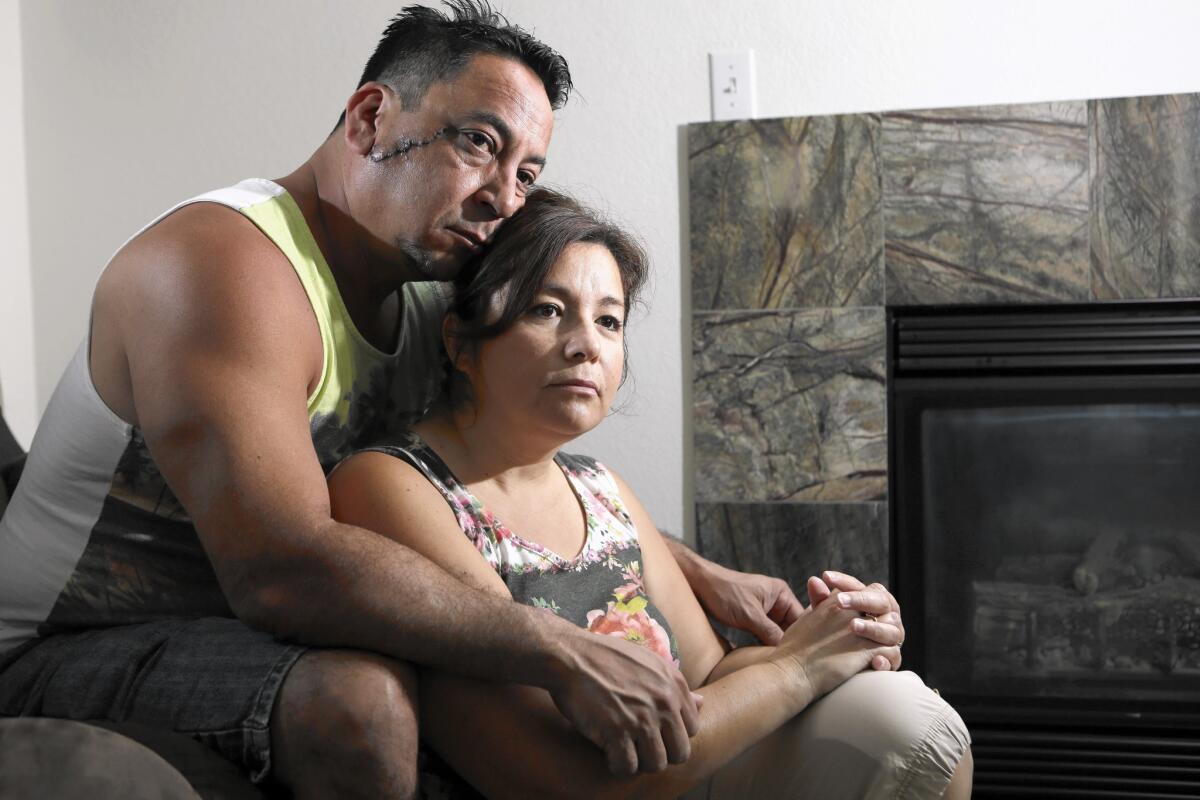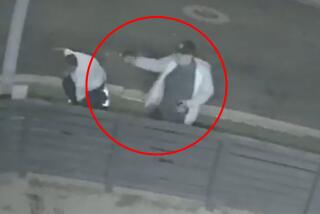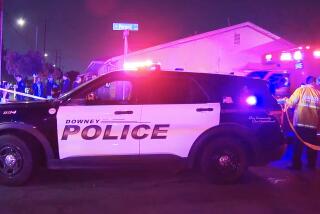Mentally ill Chino man who stabbed parents will be sent to hospital, not prison

Aaron Hernandez, a young man diagnosed with paranoid schizophrenia who tried to kill his parents in their Chino home in September, was found not guilty by reason of insanity on an attempted murder charge Friday.
The outcome means he will be sent to a state psychiatric hospital for treatment — potentially for life — instead of to prison.
The Times reported about the Hernandez family and their struggles with the mental health system earlier this year. In the 2 1/2 years leading up to the attack, Hernandez, now 20, had been hospitalized eight times under a law that lets authorities hold someone in a psychiatric facility for 72 hours if they are deemed a threat to themselves or others.
His parents, Anthony and Cynthia Hernandez, said their son had been unwilling to stick with mental health treatment voluntarily. And they were stymied in their attempts to have him placed under a mental health conservatorship that would have allowed them to make decisions about his treatment, including possibly placing him in a locked psychiatric facility for a longer period.
The family’s struggles culminated in September 2014 when Aaron, in a delusional state, beat the family dog to death with a baseball bat and stabbed and injured his mother and father. He was arrested after the attack and has remained in San Bernardino County jail since.
If he had been convicted of the charges of attempted murder and animal cruelty, he would have faced a potential life sentence in prison. Anthony and Cynthia pushed for an outcome that would send their son to a state hospital instead.
The court found Aaron not guilty by reason of insanity based on a report from a psychologist who evaluated him. Lawyers with the district attorney and public defender offices had agreed to a rare deal under which Aaron pleaded not guilty by reason of insanity to one count of attempted murder and the remaining charges were dismissed. A previous misdemeanor case in which he was charged with indecent exposure and having an open container of alcohol was also dismissed.
Aaron could be kept in the hospital for the maximum time he would have been sentenced to if found guilty, which in this case would be life. But he could also be released relatively quickly if the court finds that his sanity is restored enough that he no longer poses a threat to others. His public defender, Sergio Salcedo, said the minimum amount of time Aaron would spend confined would be 180 days, after which he would be required to successfully take part in an outpatient treatment program for one year.
Salcedo said he appreciated the prosecutor’s willingness to work out a deal that would lead to treatment instead of prison.
“In general, mental health clients are the most difficult to represent because the system is extremely flawed,” he said. “It is truly a tragedy when they are placed in jail or prison because of their mental illness.”
Hernandez’s parents said after the hearing that they were relieved Aaron will go to a hospital instead of to prison. But they also expressed frustration that it had taken such an extreme turn of events to get their son into a treatment facility. Since the incident, they have become outspoken advocates, even traveling to Washington to push for reforms in the mental health system.
“We have become victims of a broken mental health system that exists in San Bernardino County,” Anthony Hernandez told the court.
Still, Cynthia Hernandez said the outcome of the criminal case had given her new hope for her son’s future.
“Aaron has the ability to recover from his illness, to live as normal a life as he possibly can, because he’s been given this chance,” she said.
Judge Stanford E. Reichert said he would recommend that Aaron be placed at Metropolitan State Hospital in Norwalk. The placement will be finalized at a later hearing.
More to Read
Sign up for Essential California
The most important California stories and recommendations in your inbox every morning.
You may occasionally receive promotional content from the Los Angeles Times.











